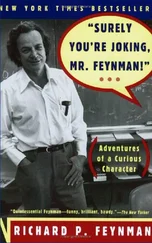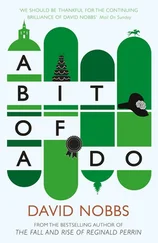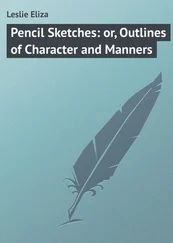He once told me, he said, Even after burning, the breastbones of men and the pelvises of women remain. That instead of crumbling to ash they are sent down the river to sail, to sink in its bed. One day when the Ganga dries up they’ll find them there. Thirty billion pelvic bones, thirty billion sternums. The history of the world in a watery grave.
And just his presence. Just his hand on my belly as we sleep, when he loves me. It lives forever.
Close your eyes, go to sleep.
It lives forever, the hand on my shoulder in the train on the way, in the compartment, hanging down from the top bunk. I look at them, my mother and my father, and he is stroking her hair. He is holding her in his lap like a little bird.
In the black and yellow of the taxi to the city we sit with our luggage stacked around us on the torn leather seats. Then, in the lanes that are too narrow for taxis, a cycle rickshaw, groaning under our weight. They’re carrying the luggage on their heads the last bit of the way — my bag is on my head, I’m mimicking them. Lots of legs, and those sudden processions of the dead coming round each bend.
At the house where we’re staying, the courtyard has water flowing in narrow channels around its edge and creepers in bowls that climb up the walls to the lattice-screen balconies on the first floor. The gates of the courtyard open to the alleyway. When they are closed, the city remains as noise coming through a blue square of sky, where toy kites fall and rise. There’s a hospital nearby. You hear the cries of the patients in the morning, the hacking of phlegm in the throat that is the song of India.
Then one evening the wind changes and a thin layer of grey falls on the courtyard floor. It’s the ash, someone tells me, coming from the burning ghat, the ghat of the dead.

In the café I get up to go to the bathroom, and in the cramped bathroom away from the AC, I feel the city crawling over me — as soon as I’m through the door it crawls through the window in squashed and malodorous heat. In thousands of horns and voices, in red dust. Night is falling, so the people are moving back out to the streets, bulbs are being switched on in the stalls, in the doorways. The retreating sun releases fragrance, incense, sewer smells, frying food, exhaust fumes. The minarets give their call to prayer, the rising swarm of their devotion telling us that God is great.

Early next morning I left to see the dead. Alone, no one knew I’d gone, snuck out through the alleyways, I was drawn to the river, somehow I knew where it would be. Coming round a corner on the cobbles to a slope running north-east, long like the slopes that boats are pushed down, but at the bottom before the water it’s the inferno of Dashashwamedh.
There are two pyres in my head, maybe three. The third might be lower down, out of focus, but these two are raised up, clear in my mind, on abutments of concrete. Behind there is a wooden tower and around this many piles of wood, many different kinds, each more expensive than the last, each more fragrant, to mask the smell of burning flesh.
There’s already a body roasting there, almost done, its family quietly accepting now.
This girl would have looked wide-eyed to anyone watching her. Transfixed, standing without words. The smoke changing direction without warning, billowing across her, pieces of ash running into her dress, sticking in her hair.
Bluest of blue skies, not a cloud within it, and already hot at 7 a.m., even without the raging fires whose ripples in the daylight are a thing to behold.
After a lull, a new procession begins, the body wrapped in bandages as in the alleyways, the pyre cleared, the ash and logs swept away, the last bone set to sail as the soul drifts up past the crows on the rooftops and the new pyre is laid. They are sobbing, the women, a group of women holding on to one another. One in the middle cannot be contained. At any moment she might break away, fall forward to embrace the dead man’s face.
It has a moustache, a balding head. It is laid on the crisscrossed wood, the fire is lowered on a stick, pressed in underneath. It takes hold and quickly begins to spread. The hysteria of the widow stops and it seems as if the whole universe has held its breath.
I feel the heat of the flames against my skin, I cannot take my eyes away, I think that he’ll jump out at any moment and run. But nothing happens like this. Instead the moustache zips out of existence like a magic trick, the eyes melt, the yellow layer of fat beneath his skin becomes exposed, it starts to sizzle and pop. Soon the bright white bone shows through. He is burning away; he’s dead and he is disappearing again. The widow: I watch her watching this, not removing her eyes, and there’s no mistaking that nothing exists in time.
Afterwards, alone, far downriver, in silence beyond all roar, a naked Aghori smears himself in cremation ash. He pulls a corpse from the water to pick at the bones, to eat the sodden and putrid flesh raw. Many years later I’ll see him again in the final face of the man I love.
It’s only when he dies that I’ll become the person he wants me to be. Only when he dies that I’ll let go, sleep with other men, let them sleep with me. But right now he’s alive, I’m twenty, untouched, and he’s staring at me.

When I come out of the bathroom he’s sitting at my table. He says some women had moved to take it, thinking it empty, but he’d stopped them, he’d given up his own instead. I don’t know if it’s true, but the appearance of the women there backs up his words. And here he is at the table, standing up, holding out his hand, looking into my eyes, saying, Pleased to meet you.
His voice is educated, frank, completely unexpected. There’s a foreign lilt to it, as with those who’ve been to the American School. Very slight — he wears it like a set of summer clothes. As if it could go up in smoke.
But his body, his eyes, his entire way of being, makes me think of someone who’s been lost at sea, lost for a long time, or else wandered out of the forest, as if he’s been in the forest and learned something there.
There’s not a shred of fat on him, it’s all muscle and sinew, coiled eye and glacier bone, as if he’s covered every inch of land, burnt off every strip of fat through breathing.
So now there’s this wild animal dressed in human clothes, with a set of keys picked up from the table and a wallet stuffed full of rupee notes.

When I went back to the house from the ghat that day there was ash all over my body, all in my hair and in my clothes. I reeked of smoke. They’d been looking for me, my mother was panicking. She beat me, stripped me and scrubbed me clean, and I cried for an hour in her arms.
Varanasi looks like the scene of a plane crash in my sleep. Small fires are scattered about, seen from above, scattered on the banks where the debris still burns, where homes have been wiped out without warning, where bodies are strewn. Night falls in Varanasi and pockets of fire still rage from the blackness, their flames reach up to diminish the stars, spewing sparks into deep space, souls orbiting the terror of this world.
There are lingams everywhere in the Varanasi of my dreams. On top of every step, at every ancient corner turned. It’s a virile city, teetering on the brink. And on the other bank it is barren like the afterlife.
The Ganga is a river that flows backwards in time.
Читать дальше













